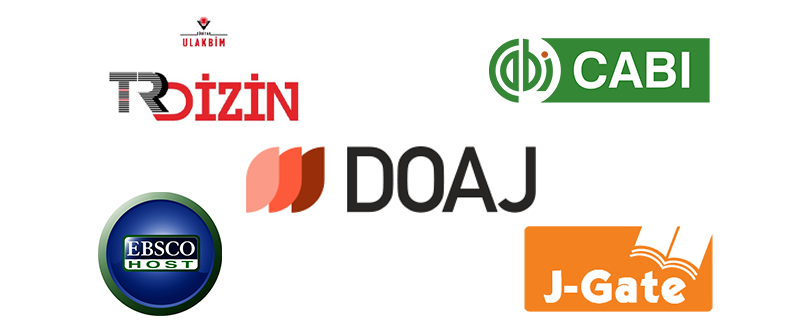Ethical Issues & Publication Policy
General Principles
Publishing Ethics and Malpractice Policies:
The Van Medical Journal adheres to a set of robust publishing ethics and malpractice policies, guided by well-established industry standards and best practices. Specifically, the journal follows the principles outlined in:
- Principles of Transparency and Best Practice in Scholarly Publishing: Jointly endorsed by COPE (Committee on Publication Ethics), DOAJ, WAME, and OASPA.
- ICMJE Recommendations: The journal incorporates the "Recommendations for the Conduct, Reporting, Editing, and Publication of Scholarly Work in Medical Journals."
By aligning with these guidelines, the Van Medical Journal promotes transparency, integrity, and professionalism, ensuring credibility for authors, reviewers, and readers.
Artificial Intelligence (AI)
Use of Artificial Intelligence (AI) and LLMs:
Artificial Intelligence (AI) tools (such as ChatGPT, LLMs, chatbots, or image creators) do not meet the authorship criteria listed above and cannot be listed as an author.
- Authors are fully responsible for the content of their manuscript, including parts produced by AI tools.
- If AI tools were used in the writing process, data analysis, or image generation, this must be transparently disclosed in the "Materials and Methods" or "Acknowledgements" section. The disclosure should explicitly state which tool was used and how.
Ethical Consent, Human and Animal Rights
The Van Medical Journal upholds stringent ethical standards aligned with the Declaration of Helsinki and WAME Recommendations.
Ethics Committee Approval:
For studies involving human subjects, human tissues, or animals, authors must declare compliance with ethical standards.
- Requirements: The name of the ethics committee, the approval date, and the approval number must be clearly stated in the "Materials and Methods" section and strictly reiterated in a dedicated section before the References.
Clinical Trial Registration Policy:
In accordance with ICMJE recommendations, The Van Medical Journal requires the registration of all clinical trials in a public trials registry (e.g., ClinicalTrials.gov, DRKS, or a national registry) at or before the time of first patient enrollment.
- The Trial Registration Number (TRN) and the date of registration must be included in the Abstract and the Methods section of the manuscript.
Data Privacy and Transparency
Protection of Personal Information:
Personal information collected through the website will only be used for the specific purposes of the journal (submission, peer review) and will not be shared with third parties. Data related to rejected or withdrawn articles will be deleted from the online system within one month to protect confidentiality.
Informed Consent:
Written informed consent must be obtained from all participants. Statements regarding informed consent must be included in the article text. Authors must ensure that patient anonymity is preserved unless written consent for publication of identifiable information (e.g., photographs) is explicitly provided.
Data Availability Statement:
To promote transparency and reproducibility, The Van Medical Journal encourages authors to share the data underlying their research. All accepted manuscripts must include a "Data Availability Statement" at the end of the article (before references), indicating where the data can be found (e.g., "Data available on request from the authors" or "Data available in a public repository").1
Sex and Gender Equity in Resea2rch
Promotion of Gender-Neutral Language and SAGER Guidelines:
The Van Medical Journal is committed to inclusivity. We encourage the use of gender-neutral language in all publications. Furthermore, consistent with the SAGER (Sex and Gender Equity in Research) Guidelines, authors should:
- Use the terms "sex" (biological attribute) and "gender" (socially constructed circumstances) carefully to avoid confusing them.
- Report the sex and gender of study participants and, where appropriate, analyze data by sex and gender.
Research Misconduct, Complaints, and Appeals
Handling Research Misconduct:
The journal takes a strong stance against misconduct (plagiarism, data fabrication, manipulation). Suspected cases are investigated following COPE Flowcharts. The Editor-in-Chief reviews all allegations. If misconduct is confirmed, the article may be rejected or retracted, and sanctions (such as a ban on submission) may be applied.
Complaints and Appeals:
Authors who wish to appeal an editorial decision or submit a complaint regarding the peer-review process should submit a formal letter to the Editor-in-Chief via email. The appeal must include a detailed rebuttal and justification. All complaints will be handled in a confidential manner, and the final decision rests with the Editorial Board, adhering to COPE guidelines on appeals.
Retraction Policies:
Articles may be retracted due to unreliable findings, redundancy, or unethical conduct, in accordance with COPE Retraction Guidelines. Retractions are transparently managed via the online article system.
Responsibilities of Stakeholders
Authors Responsibilities:
- Obtain and state ethical approval and informed consent.
- Ensure originality and avoid plagiarism.
- Declare all potential Conflicts of Interest (using the ICMJE form).
- Acknowledge all funding sources.
- Ensure correct language and grammar.
Referees Responsibilities:
- Maintain confidentiality of the review process.
- Provide objective, constructive, and timely reviews.
- Declare any conflicts of interest immediately.
- Adhere to COPE Ethical Guidelines for Peer Reviewers.
Editors Responsibilities:
- Ensure scientific quality and integrity of the academic record.
- Maintain reviewer anonymity.
- Prevent business needs from compromising intellectual and ethical standards.
- Take action on suspected misconduct.









